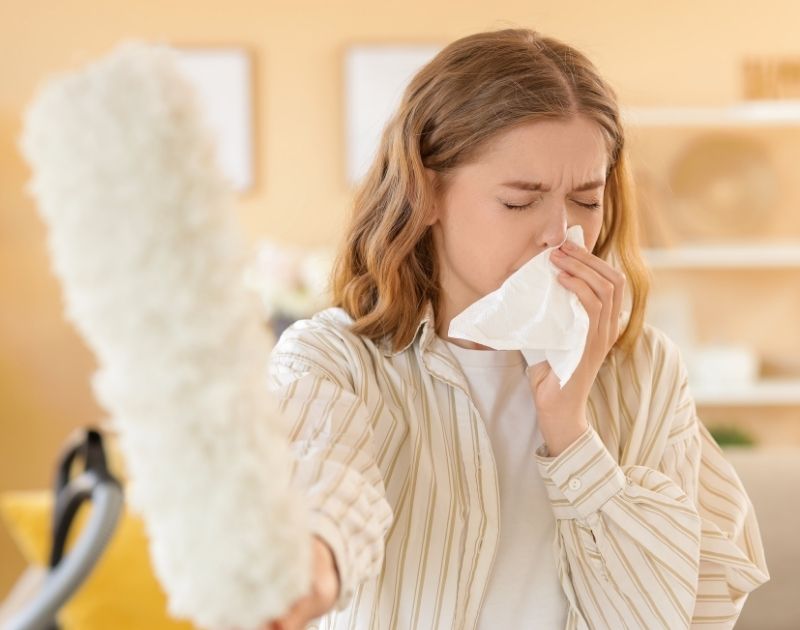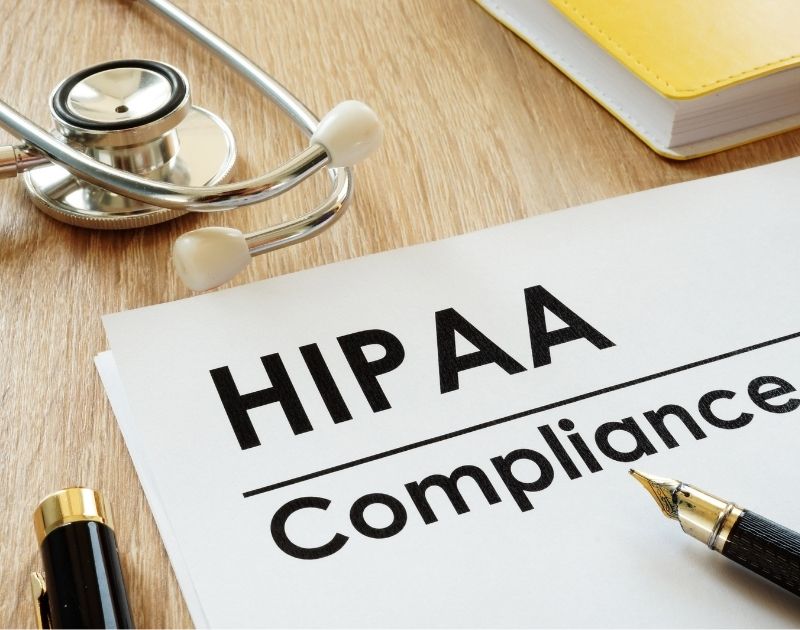Allergies are no longer just a seasonal inconvenience. For many workplaces across the United States, allergens are a year-round challenge that can quietly undermine employee health, productivity, morale, and even long-term facility condition. Dust, pollen, mold spores, chemical residues, and poor indoor air quality can all contribute to an environment where employees feel fatigued, congested, or constantly ill without knowing why.
The good news is that these issues are preventable—and the solution starts with a structured, consistent, and professionally managed cleaning program. When businesses partner with a reliable provider of Commercial Cleaning Services and Janitorial Services, they protect both their people and their facility from the hidden contaminants that commonly trigger workplace allergies.
This is precisely where Assett Commercial Services stands apart. With proven systems, trained teams, and a quality-focused approach, Assett helps organizations create cleaner, healthier, and more productive work environments year-round.
In this guide, you’ll learn how allergies arise in workplace settings, how proper cleaning prevents them, and why partnering with a trusted provider like Assett Commercial Services gives businesses an advantage in health, hygiene, and operational consistency.
Why Allergies Are So Common in Workplace Environments
Most employees spend roughly one-third of their day inside their workplace. If that space contains allergens—whether from dust buildup, carpets, HVAC systems, or improper cleaning products—employees are likely to feel symptoms regularly.
Common workplace allergy triggers include:
1. Dust and Dust Mites
Dust accumulates quickly in offices, schools, medical buildings, and industrial settings. It collects on:
-
Vents and HVAC returns
-
Window blinds
-
Carpet fibers
-
Upholstered furniture
-
Ceiling tiles and light fixtures
-
Electronics such as computers and printers
Dust mites, which thrive in warm and humid environments, are one of the leading causes of indoor allergies.
2. Mold and Moisture
Restrooms, breakrooms, basements, and areas near HVAC units often retain moisture. Even a small water leak or high humidity can encourage mold growth, which leads to respiratory symptoms, skin irritation, and increased absenteeism.
3. Pollen Entering the Building
Every time a door opens, pollen enters—especially during spring and fall. It settles on floors, furniture, and HVAC filters, where it continues circulating if not removed properly.
4. Poor Air Quality
Indoor air quality declines when:
-
Filters are not replaced
-
Vents are blocked
-
Dust accumulates
-
Chemicals are not used or stored properly
-
High-touch areas are not sanitized
Without a professional cleaning routine, many facilities unknowingly recirculate allergens for months.
5. Pet Dander
Hybrid and pet-friendly workplaces often introduce allergens from employees’ clothing, bags, and personal items.
6. Volatile Organic Compounds (VOCs)
Some lower-quality cleaning chemicals release VOCs, which can irritate the lungs and exacerbate allergy symptoms.
These problems often accumulate in facilities with inconsistent or reactive cleaning—not proactive, professional cleaning.
The Impact of Workplace Allergies on Businesses
While allergies may seem like a minor concern, the impact on a business can be significant.
Reduced Productivity
Employees who feel congested, fatigued, or irritated can’t deliver their best work. Studies show that indoor air quality is directly linked to cognitive performance.
Increased Sick Days
Allergies often cause symptoms that mimic illness—coughing, sneezing, headaches, and difficulty breathing. This leads to more time off work.
Lower Morale
Workers are more comfortable, motivated, and satisfied when they feel healthy and energized in their environment.
Negative Impression on Visitors
Dusty furniture, dingy carpets, or unpleasant odors create an impression of poor facility management.
Compliance Risks
Healthcare facilities, schools, childcare centers, and food-related operations face health and regulatory risks when allergens are not managed correctly.
This is why partnering with a trained provider of Commercial Cleaning Services like Assett Commercial Services is essential.
How Professional Cleaning Prevents Workplace Allergies
Preventing allergies requires more than surface-level cleaning. It requires expertise, proper equipment, structured schedules, and a thorough understanding of how contaminants spread in commercial environments.
Below are the key ways Commercial Cleaning Services and Janitorial Services protect your workplace from allergens year-round.
1. High-Efficiency Dust Removal
Professional cleaners use techniques and tools designed specifically for capturing and removing dust—not just pushing it around.
This includes:
-
Microfiber cloths (which trap dust instead of releasing it into the air)
-
HEPA-filtered vacuums (which remove 99.97% of particles down to 0.3 microns)
-
Dust-dampening procedures to prevent particles from becoming airborne
-
Regular cleaning schedules to prevent buildup on high surfaces
Assett Commercial Services prioritizes these systems to prevent dust from becoming a recurring problem.
2. Carpet and Floor Care That Eliminates Hidden Allergens
Carpet fibers are one of the biggest allergy culprits in commercial buildings. Even hard floors can catch pollen, dust, and contaminants if not cleaned properly.
Professional floor care includes:
-
HEPA vacuuming
-
Hot water extraction for carpets
-
Low-moisture carpet cleaning to prevent mold
-
Scheduled scrubbing and refinishing for hard floors
-
Proper matting at entryways to reduce pollen and dirt traffic
When floors are cleaned consistently, allergens have fewer places to hide.
3. Specialized Cleaning for High-Touch and High-Traffic Areas
Door handles, desks, copier machines, breakroom tables, and shared equipment accumulate allergens quickly.
Professional Janitorial Services include:
-
Disinfection routines
-
Allergen-reducing cleaning agents
-
Detailed wipe-downs of shared equipment
-
Cleaning schedules that match facility usage
This helps prevent constant spreading of allergens throughout the workday.
4. Improved Indoor Air Quality Through Proper Cleaning
Indoor air quality improves significantly when cleaning is performed correctly.
Professional teams help by:
-
Removing built-up dust that circulates in the HVAC system
-
Cleaning vents and air returns
-
Supporting filter replacement schedules (when requested by facility management)
-
Using low-odor, low-VOCs cleaning products
-
Preventing mold in moisture-prone areas
When air quality improves, employees breathe easier—and work better.
5. Mold Prevention and Moisture Control
Mold spores spread quickly and are a leading cause of workplace allergies.
Professional cleaning reduces this risk through:
-
Regular restroom sanitization
-
Checking for excess moisture
-
Cleaning and disinfecting breakroom sinks and drains
-
Monitoring for musty odors
-
Identifying leaks or water damage early
Many businesses rely on Assett Commercial Services to detect and address moisture issues before they become costly repairs.
6. Allergen-Reducing Restroom and Breakroom Cleaning
Restrooms and kitchens are hotspots for:
-
Mold
-
Bacteria
-
Odors
-
Moisture buildup
-
Contaminants from foot traffic
By maintaining strict sanitization standards, a professional cleaning provider protects employees from many common allergy triggers.
7. Appropriate Use of Green and Low-VOCs Cleaning Products
Professional providers understand the importance of reducing chemical exposure in indoor environments.
This includes:
-
Using EPA-approved products
-
Avoiding harsh chemicals that irritate the respiratory system
-
Selecting hypoallergenic or low-odor options when appropriate
-
Following proper dilution and application procedures
Assett Commercial Services uses high-quality products that promote both cleanliness and health.
Facility Types Most Affected by Allergies
While all workplaces benefit from allergen-reducing cleaning, certain environments face higher risks.
1. Offices
Cubicles, upholstered seating, carpet, and shared equipment all collect allergens quickly.
2. Schools and Universities
Children and students with sensitivities are especially vulnerable.
3. Medical Buildings
Air quality and hygiene are critical for patient safety.
4. Warehouses and Industrial Facilities
Dust is a constant challenge in large, open spaces.
5. Auto Dealerships
Showrooms see high foot traffic, leading to more pollen and dust buildup.
6. Churches and Community Centers
Large gatherings increase airborne allergens.
Assett Commercial Services specializes in providing customized cleaning plans for all these facility types, ensuring consistency, reliability, and long-term protection.
Why Assett Commercial Services Is the Best Partner for Allergy Prevention
Businesses across the United States trust Assett Commercial Services because of our focus on quality, reliability, and results. When it comes to preventing allergies in the workplace, our processes stand out.
1. Comprehensive Cleaning Systems
Assett uses structured routines designed to remove dust, pollen, mold, and airborne contaminants efficiently and consistently.
2. Highly Trained Cleaning Teams
Our cleaners are trained to follow allergen-reducing procedures, use proper equipment, and maintain professional standards.
3. Facility-Specific Cleaning Plans
Every building is evaluated individually to develop a plan tailored to its size, usage, flooring, traffic patterns, and known allergen risks.
4. Advanced Equipment and Products
From HEPA vacuums to low-VOCs products, Assett uses tools that protect both the facility and its occupants.
5. Reliable Scheduling and Consistency
Allergy prevention requires consistency—and Assett delivers exactly that.
6. Long-Term Protection and Reporting
Supervisors, checklists, communication systems, and regular walkthroughs ensure high-quality results week after week.
How to Keep Allergies Low Between Professional Cleanings
While professional cleaning provides the foundation for a healthier workspace, businesses can support these efforts by encouraging:
-
Regular handwashing
-
Decluttering workspaces
-
Keeping food contained to breakrooms
-
Replacing HVAC filters on schedule
-
Using air purifiers where needed
-
Keeping entry doors closed during high-pollen days
-
Ensuring employees avoid scented personal products that may irritate others
Together with consistent Commercial Cleaning Services, these steps create a safe, comfortable environment year-round.
A Cleaner Workplace Means Healthier Employees and Better Performance
Preventing allergies is not just about cleanliness—it’s about creating a healthy, productive workplace where employees can do their best work. Professional Janitorial Services reduce dust, mold, pollen, and chemical exposure, while improving air quality and overall comfort.
Assett Commercial Services is committed to helping businesses accomplish exactly that. With reliable systems, trained teams, and customizable cleaning programs, we help businesses protect their people and maintain a facility that supports performance, morale, and long-term health.
Ready to Improve Air Quality and Reduce Allergies in Your Workplace?
If you’re ready to create a healthier, more productive environment for your employees, Assett Commercial Services can help. Our comprehensive Commercial Cleaning Services and Janitorial Services are designed to eliminate allergens, improve air quality, and protect your facility year-round.
Request a customized cleaning plan today and discover how Assett Commercial Services can transform your workplace.




